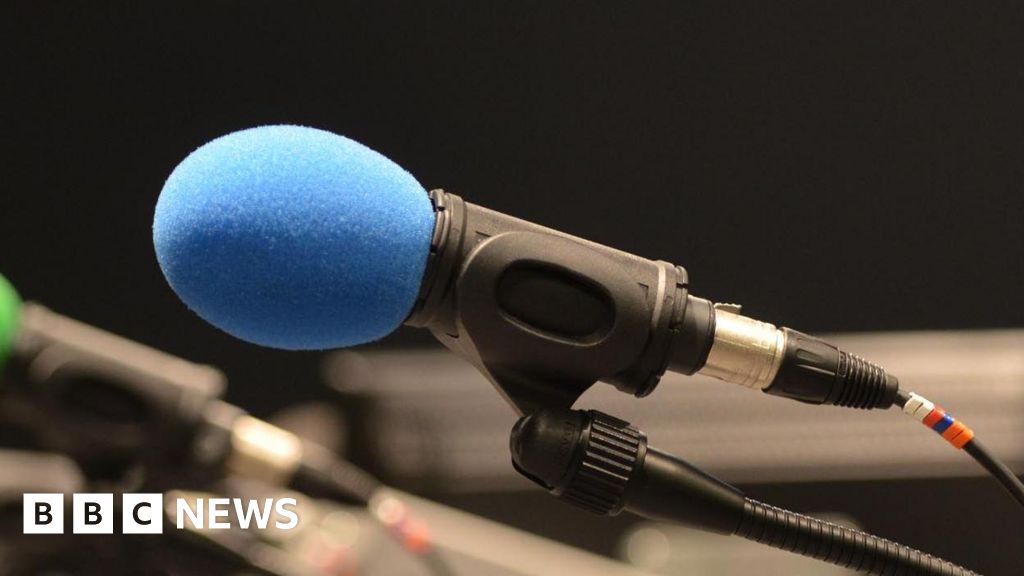 Getty Images
Getty ImagesThe should also take a stand if Israel participates in the 2026 Eurovision Song Contest, musician and songwriter Phil Coulter has said.
The Irish broadcaster, RTÉ, has said it will not take part if Israel does, “given the ongoing and appalling loss of lives in Gaza”.
Mr Coulter has written or co-written several songs for Eurovision, including the UK’s winning song “Puppet on a String” in 1967, which singer Jade Thirlwall sampled last year.
He said he is “100% behind RTÉ” in their decision to withdraw from the contest.
The has declined to comment.
RTÉ will make a final decision once the Eurovision organiser, the European Broadcasting Union (EBU), makes its decision.
 EPA
EPASpeaking to Radio Ulster’s Good Morning Ulster programme, Mr Coulter said he feels “very strongly” about Ireland not participating in Eurovision if Israel does, due to the ongoing conflict in Gaza.
“Musicians, songwriters and performers are human beings with consciences.
“I think the only sensible thing and the only decent thing for RTÉ to do is to withdraw from the contest if Israel is allowed to perform.”
He also said there is a “double standard” that Israel being allowed to participate whereas Russia was expelled from the 2022 contest due to Russia’s invasion of Ukraine.
“What’s the difference between that tragic event and what’s happening in Gaza?” Mr Coulter asked.
He also said that the should take a similar position to RTÉ and not participate in next year’s Eurovision.
“I think it is a question of conscience, and as RTÉ have made this step – it reflects the feeling of the general public and I’m quite sure that throughout the United Kingdom people are equally disgusted by what’s going on in Gaza,” Mr Coulter told the programme.
 Getty Images
Getty ImagesNext year’s contest will be held in May in Vienna.
Slovenia’s national broadcaster, RTVSLO, has also said it will withdraw from the competition if Israel participates.
Spain’s Culture Minister Ernest Urtasun has said that his country may also not take part should Israel participate.
Stefán Eiríksson from Iceland’s national broadcaster RÚV said its involvement in the 2026 contest was “subject to the outcome of the ongoing consultation process within the EBU, due to the participation of the Israeli state broadcaster KAN in the competition”.
Mr Eiríksson added that RÚV “reserve the right to withdraw from participation in it if the EBU does not respond satisfactorily”.
In a statement on Thursday, RTÉ said: “It is RTÉ’s position that Ireland will not take part in the 2026 Eurovision Song Contest, if the participation of Israel goes ahead, and the final decision regarding Ireland’s participation will be made once the EBU’s decision is made”.
It added: “RTÉ is also deeply concerned by the targeted killing of journalists in Gaza, the denial of access to international journalists to the territory, and the plight of the remaining hostages.”
Ireland has won the contest seven times in total, most recently in 1996.
 Getty Images
Getty ImagesMartin Green CBE, Director of the Eurovision Song Contest, said the EBU “understand the concerns and deeply held views around the ongoing conflict in the Middle East”.
He added: “We are still consulting with all EBU members to gather views on how we manage participation and geopolitical tensions around the Eurovision Song Contest.
“Broadcasters have until mid-December to confirm if they wish to take part in next year’s event in Vienna. It is up to each member to decide if they want to take part in the contest and we would respect any decision broadcasters make.”
Earlier this year, more than 70 former Eurovision contestants signed a letter calling on the organisers to ban Israel from the 2025 competition.


